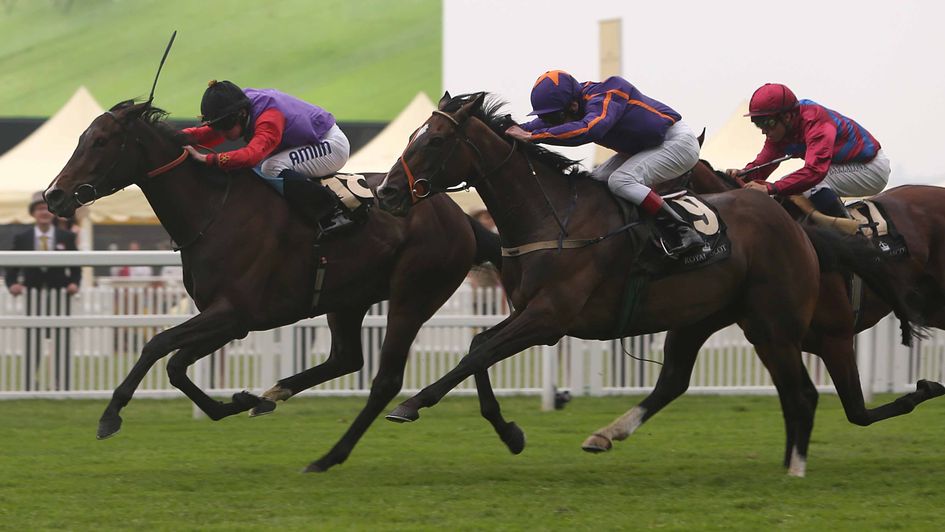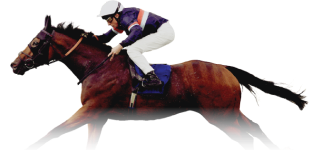She was synonymous with the meeting and John Ingles recalls The Queen's golden days at Royal Ascot.
When favourite Tactical, trained by Andrew Balding and ridden by James Doyle, won the Windsor Castle Stakes in 2020, he became the 24th winner for the Queen at Royal Ascot. Unfortunately, the colt’s owner wasn’t present for that success due to Covid-19 restrictions that year, the first time in her reign that she missed the meeting that traditionally opened each day with Her Majesty arriving by carriage down the length of the Ascot straight.
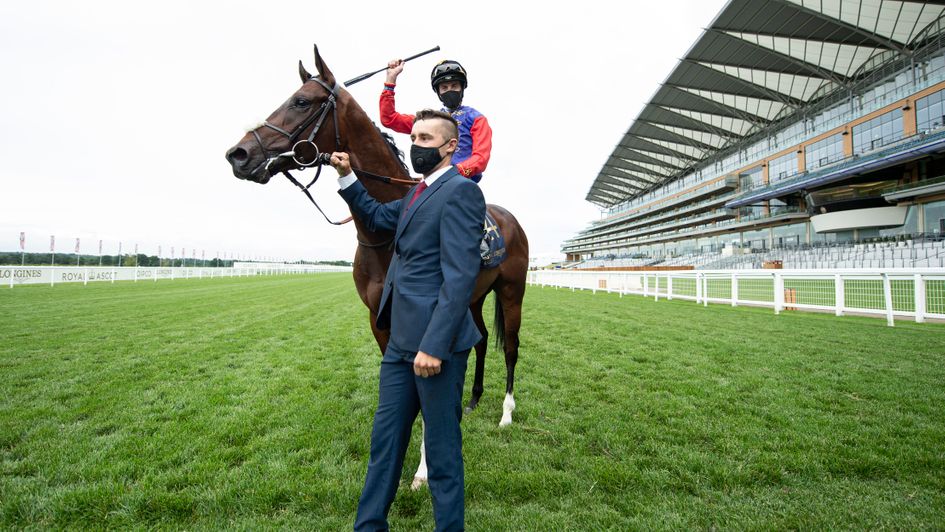
The Queen’s first Royal Ascot winner came just weeks after her coronation in 1953 when Choir Boy beat 20 rivals to win the Royal Hunt Cup for trainer Cecil Boyd-Rochfort and Doug Smith carrying just 7-8. The 1950s were to prove a particularly successful decade for the royal colours at the meeting and included a second Hunt Cup winner, Alexander, in 1956. Two of the best horses the Queen ever owned were successful at Royal Ascot during this decade. In 1954, the previous year’s Derby runner-up Aureole won the Hardwicke Stakes in between victories in the Coronation Cup and King George VI & Queen Elizabeth Stakes. Aureole had only three rivals to beat in the Hardwicke but it took a top-class performance and a game rally from him to get the better of the high-class French colt Janitor by a short head, conceding 7 lb to the runner-up.
In 1957, the Queen’s future 2000 Guineas winner Pall Mall followed up a debut win at Haydock by winning the New Stakes (nowadays the Norfolk) at Royal Ascot. He attempted a second Royal Ascot win at four in the Hunt Cup but finished second under top weight, giving 20 lb to the winner Faultless Speech.
Aureole’s Hardwicke Stakes win was to be the first of three in that race for the Queen. Aureole himself sired the Queen’s 1968 winner of that contest, Hopeful Venture, who was leased from the National Stud to run in the royal colours. He won a substandard Hardwicke but beat a much stronger field next time out in the Grand Prix de Saint-Cloud which was the biggest win by an English-trained horse in France for 20 years. It was a French jockey, Olivier Peslier, who partnered the Queen’s third Hardwicke winner when Dartmouth was successful in 2016.
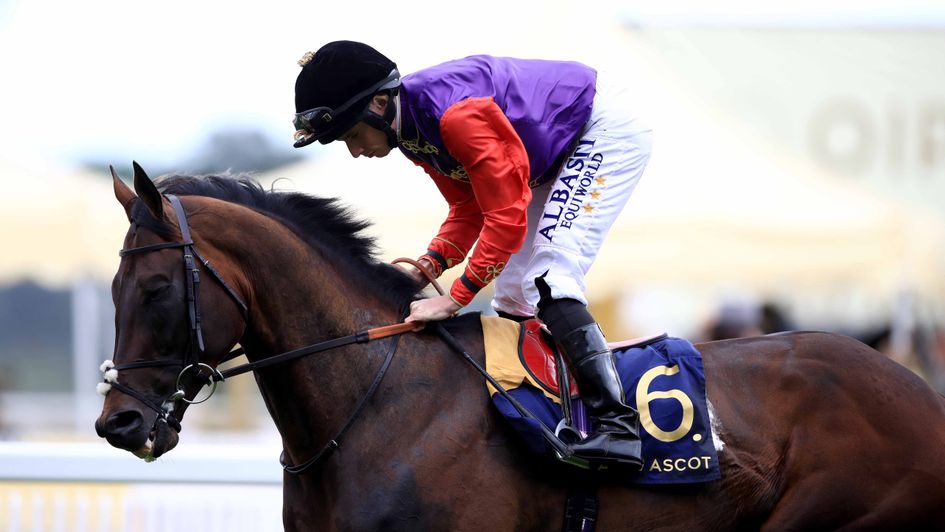
Coming in the week of the Queen’s official ninetieth birthday, Dartmouth was a popular winner after his owner’s six earlier runners at the meeting had all failed to reach the frame. Very much the Sir Michael Stoute stable’s second string according to the betting behind the well-backed favourite Exosphere, Dartmouth quickened into the lead a furlong out before battling on gamely to hold off the persistent challenge of Highland Reel. There was only a head in it at the line, and Dartmouth then had to survive a stewards’ inquiry after he had edged right towards his rival in the final furlong.
Stoute was responsible for favourite Blueprint in the 2000 renewal of the Hardwicke and, while he was beaten into third, it was one of the best efforts of Blueprint’s career. Typically for one from his stable, Blueprint had progressed from handicaps to pattern company as an older horse and, a year earlier at the Royal meeting, had been the Queen’s final Royal Ascot winner of the twentieth century when winning the Duke of Edinburgh Handicap under American jockey Gary Stevens.
A number of the Queen’s Royal Ascot winners came from the same families which had been developed at the Royal Studs from well back in the twentieth century. Blueprint himself was a good example as he traced back to Hypericum who had won the 1946 1000 Guineas for the Queen’s father King George VI. Hypericum became dam of the Queen’s 1958 King Edward VII Stakes winner Restoration.
A pair of closer Royal Ascot-winning relatives were the stayers Magna Carta and Buttress. Magna Carta won the Ascot Stakes in 1970 (he also won the Doncaster Cup later that season), while his half-sister Albany, a daughter of Pall Mall, became dam of Buttress who won the Queen’s Vase in 1979.
In that same year, 1979, Expansive gave the Queen another Royal Ascot winner in the Ribblesdale Stakes. Sixteen years later, Expansive’s granddaughter Phantom Gold won the same race before going on to win the St Simon Stakes and, as a four-year-old, the Geoffrey Freer Stakes. Phantom Gold’s trainer, Lord Huntingdon, had also trained the Queen’s 1992 Hunt Cup winner Colour Sergeant. Phantom Gold proved one of the Royal Studs’ most successful broodmares, becoming grandam of one of the best two-year-olds to have been owned by the Queen, Reach For The Moon. He finished second in the Chesham Stakes in 2021 and Hampton Court in 2022, while his dam Golden Stream had also been a Royal Ascot runner-up, in the Sandringham Handicap.
But the royal colours had success in the Chesham in 2008 with Free Agent who ended a drought for his owner at the Royal meeting stretching back nine years to Blueprint’s victory. Trained by Richard Hannon senior, Free Agent developed into a smart stayer and was another with long-established roots in the Royal Studs going back to Expansive’s half-sister Example whose wins included the Park Hill Stakes.
Back in 1961, Lester Piggott rode the Queen’s Aiming High to victory in the Coronation Stakes, nowadays one of several Group 1 contests at Royal Ascot. But since the pattern system was created, only one of the Queen’s Royal Ascot winners came at the highest level, appropriately enough in what was traditionally the meeting’s biggest race of all, the Gold Cup. By then, the filly Estimate was already a Royal Ascot winner when easily landing the Queen’s Vase twelve months earlier in 2012, the year of her owner’s Diamond Jubilee. Trained by Sir Michael Stoute, Estimate showed clear promise for the ‘Cup’ races as a three-year-old and, after returning at four with another win at Ascot in the Sagaro Stakes, she started the 7/2 favourite for the Gold Cup.
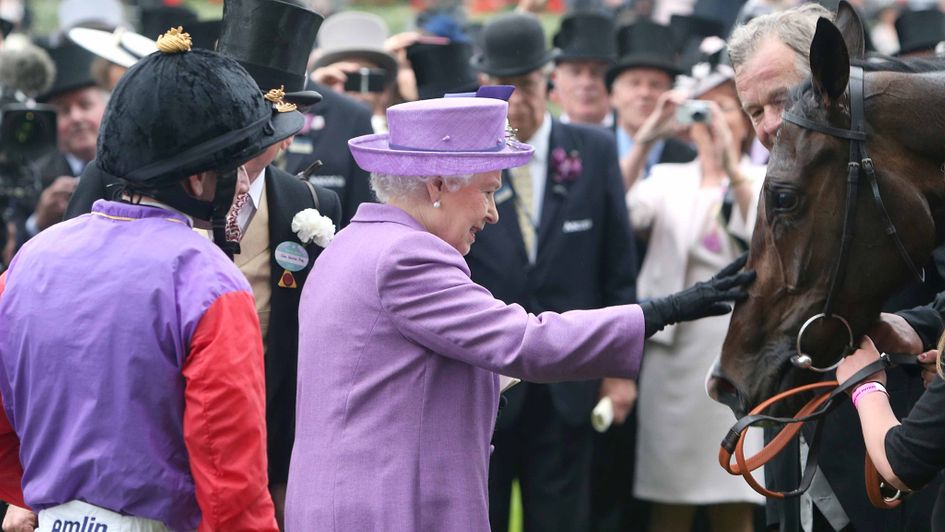
Never far away under Ryan Moore in a steadily-run race, Estimate edged ahead with just over a furlong to run and kept on well in a pulsating finish to hold off Irish challenger Simenon by a neck, with French colt Top Trip only another length behind them in third. Estimate and her owner returned to a rousing reception and, more accustomed to presenting the Gold Cup to the winning owner, the roles were reversed as she received the trophy from Prince Andrew. Estimate was the Queen’s first Group 1 winner in Britain since Dunfermline won the Oaks and St Leger 36 years earlier and she was the first reigning monarch to win the race since the Gold Cup was founded in 1807.
Related content
- Sporting world mourns death of the Queen
- Racing suspended following Queen's death
- BHA remember 'one of greatest supporters'
- Henderson and Stoute lead tributes
- The Queen: A lifetime in racing
- The Queen in racing: Her five best horses
- The Queen's affinity with the sport of kings
- Carson remembers great days in royal silks






